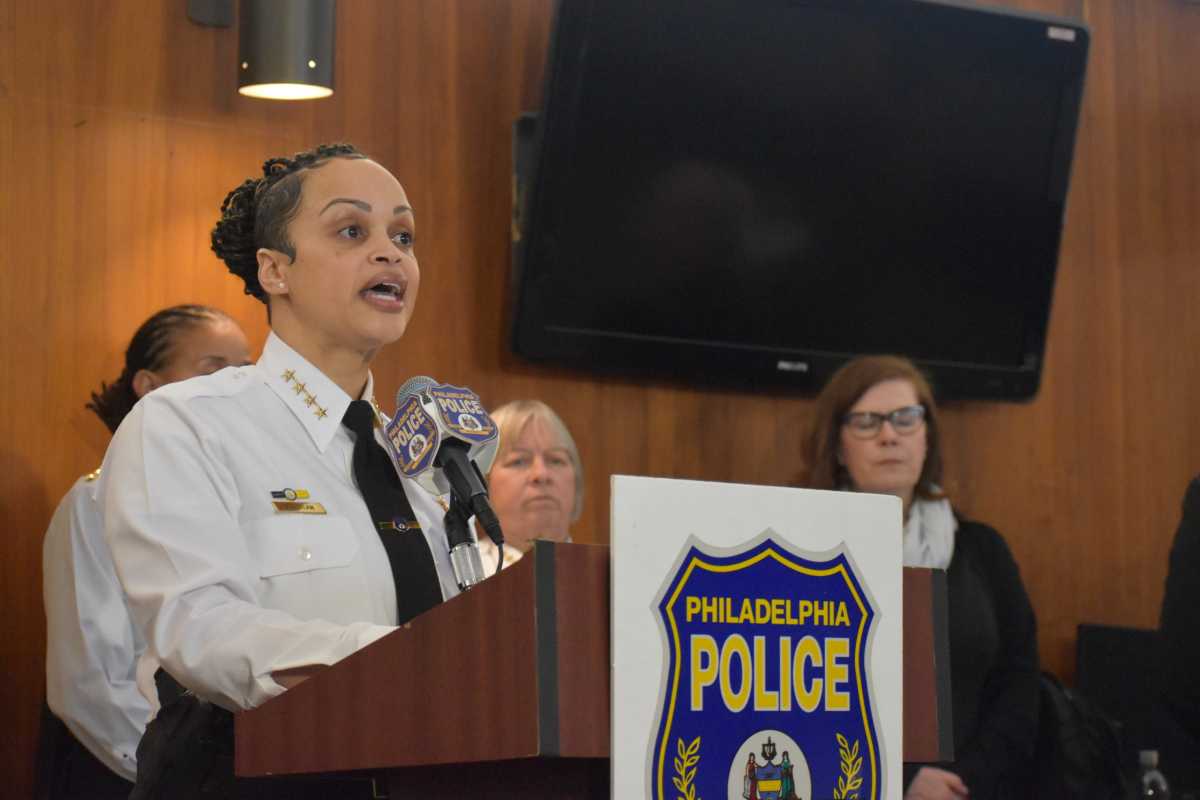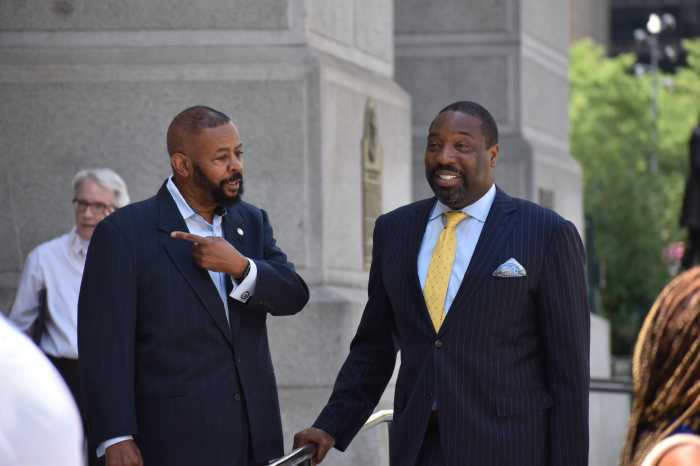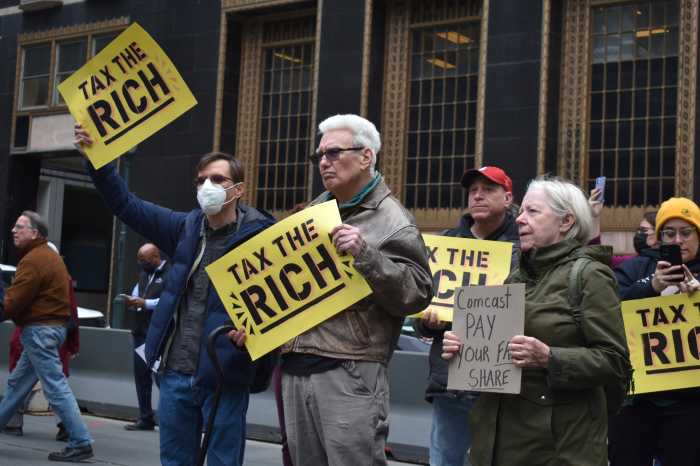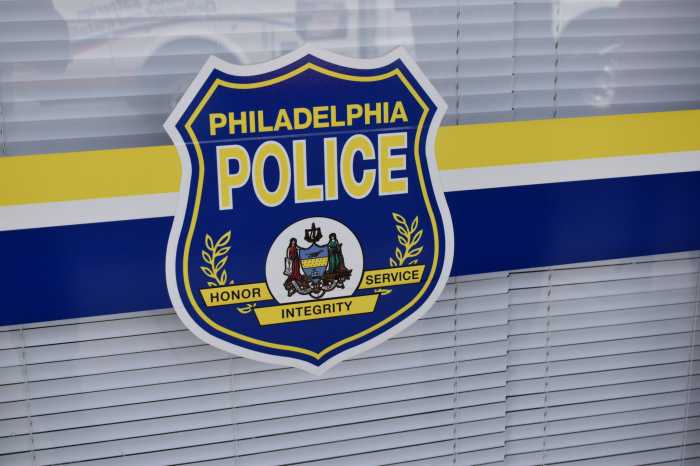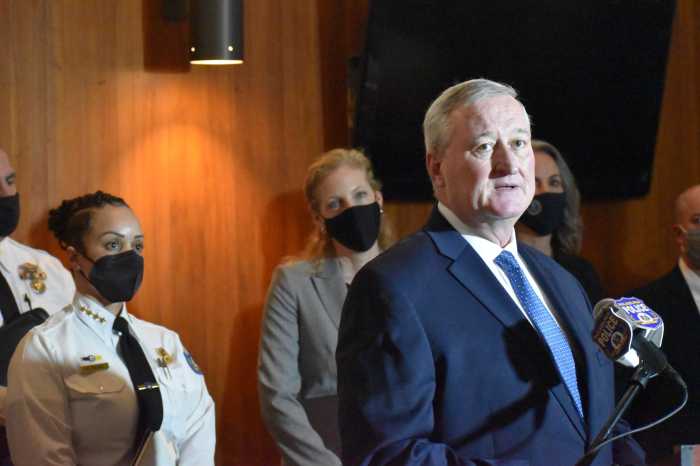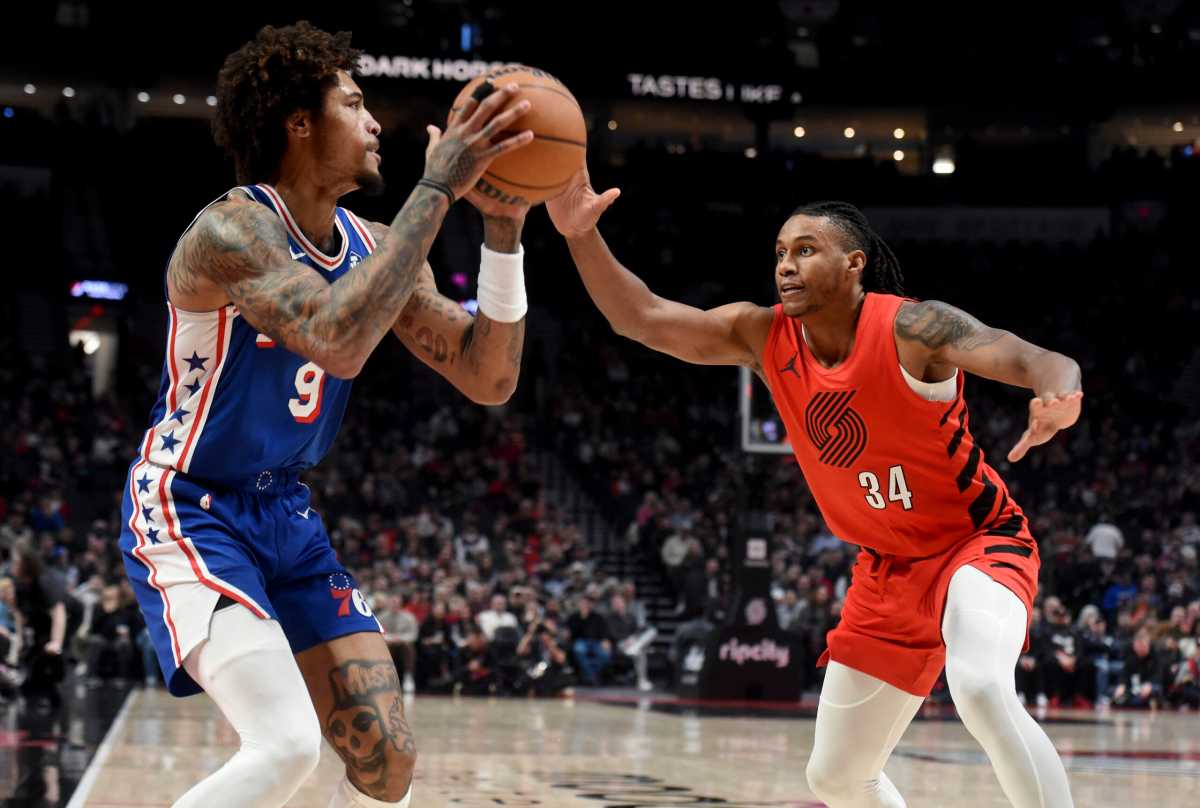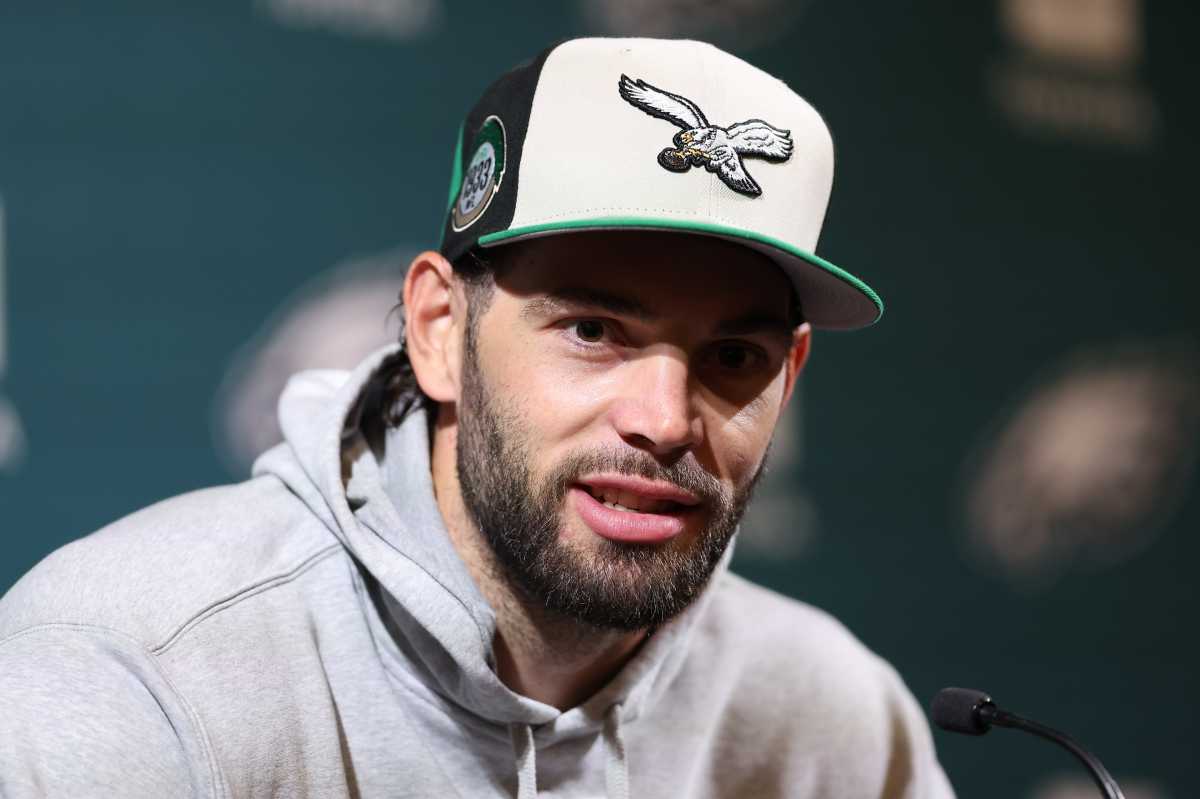Even with more than 400 officer vacancies, the Philadelphia Police Department is slated to receive just $10,700 to spend on recruitment for the next fiscal year.
During a budget hearing Tuesday, some, including City Council President Darrell Clarke, seemed stunned the department was not investing more in addressing its staffing issues, which Police Commissioner Danielle Outlaw called a “crisis.”
PPD administrators said they requested $125,000 for recruitment, but Mayor Jim Kenney did not include the expenditure in his proposed budget.
Though the department is budgeted for 6,380 officers, there are 438 spots unfilled and 13% of the force is out on injured leave — many taking advantage of the so-called Heart and Lung benefit, a program a recent Inquirer report found to be, at times, egregiously abused.
“I would like the police department, along with (the city’s human resources department), who does that for a living, to recruit, to have a defined strategy and a defined budget and a defined timeline,” Clarke said Tuesday.
Kevin Lessard, Kenney’s communications director, told Metro in an email that the $125,000 ask “was considered, but given the general fiscal constraints of the City, not all requests for funding are able to be accommodated.”
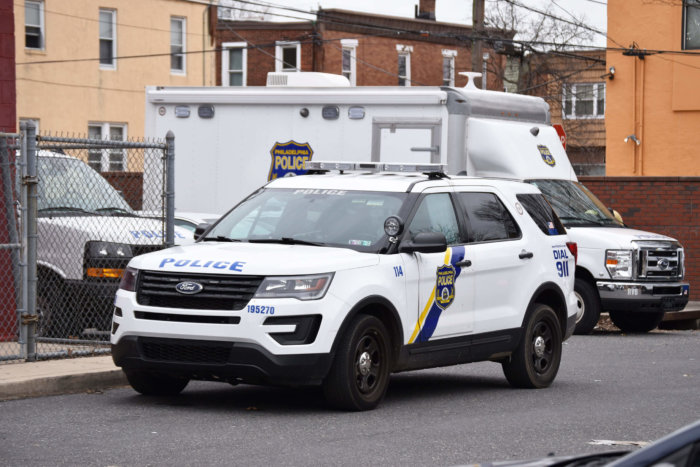
Kenney’s plan incorporates a $23.7 million yearly increase to the PPD, raising the total police budget to $781.8 million. The money accounts for officer raises and bonuses as a result of a recent union contract, along with investments in mobile technology and forensic upgrades.
The mayor’s budget, currently being scrutinized by Council, also devotes $184 million to initiatives aimed at preventing gun violence, Lessard noted.
“We are happy to continue this conversation about allocating either more or reallocating within the police department budget,” Marisa Waxman, Kenney’s budget director, told lawmakers on Tuesday.
Council’s focus on manpower comes at a time when crime and public safety is the No. 1 issue for 70% of city residence, according to a report released by the Pew Charitable Trusts earlier this month.
The same survey, conducted in January, found that 60% of residents, including nearly 70% of Black Philadelphians, believe the city needs to hire more officers.
After 2021, when killings in the city reached their highest level, homicides are down 4% compared to this time last year and the total number of shootings victims is up 4%.
Outlaw, during Tuesday’s virtual meeting, said she has asked the city’s Civil Service Commission to lower the minimum recruit age to 20 years and three months, meaning rookie officers could be as young as 21.
She argued the change could help drive more young people to the police academy. Currently, recruits have to be at least 22. A board will consider Outlaw’s request next month.
Earlier this month, the Kenney administration obtained a temporary waiver to bypass residency restrictions for police and correctional officers, who were previously required to live in Philadelphia for a year before being hired.
Now, recruits for those positions will have six months after finishing their job’s probationary period to establish a residence in the city.
In addition, officials are crafting hiring documents that could help retain PPD-trained officers who may be lured by suburban law enforcement agencies.
State regulations indicate that municipalities that hire away trainees within two years must reimburse police departments for academy costs, PPD leaders said.
Philadelphia recruits spend nine months in the academy, meaning they don’t have to work in the city for long before being able to take a job elsewhere.
“There’s talk of people in the academies now that are already talking about when they’re going to go as soon as they’re legally able to do so,” Outlaw said.
Staff Inspector Francis Healy, a special advisor to the commissioner, said he is developing contract language that would stipulate that PPD recruits remain with the department for at least five years or be forced to pay back their training costs.
Officer salaries, another topic of interest during the hearing, are medium-to-high compared to other departments nationally, with most making more than $60,000 a year after hitting the streets, Deputy Police Commissioner Christine Coulter said.
A bill backed by Councilmember Derek Green would provide an escalating series of cash bonuses for those who enroll in the police academy, up to $10,000 for recruits who complete one year on the force.
Lawmakers touched on a wide range of topics during Tuesday’s four-hour hearing, including the possibility of a 911 texting service, ATV and dirtbike enforcement and the opioid epidemic in Kensington.
Council is in the process of reviewing Kenney’s spending plan and must reach a budget agreement with him before the end of June.



